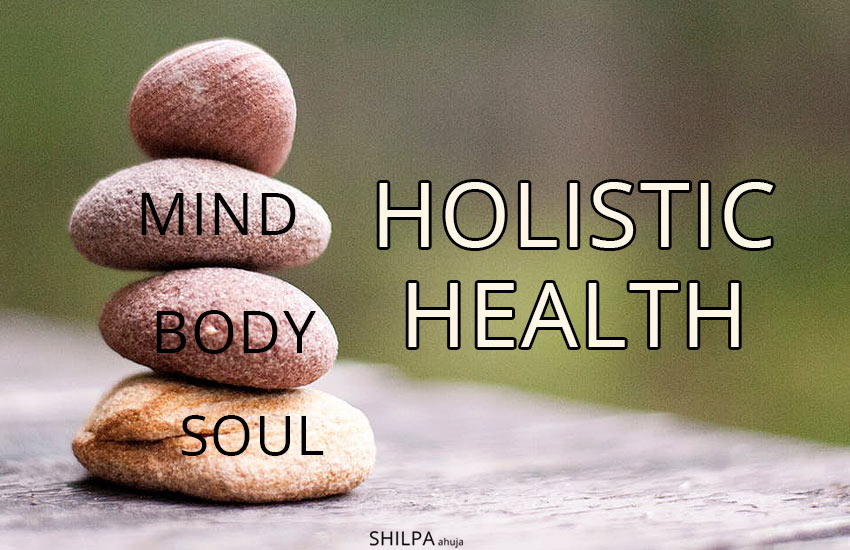In today’s fast-paced world, people are often focused on achieving success in specific areas like their careers or physical fitness, but true well-being comes from a more integrated approach. A holistic lifestyle emphasizes the interconnectedness of mind, body, and spirit, promoting balanced living and overall health. By incorporating holistic practices into your life, you can experience numerous benefits that not only enhance your daily routine but also support long-term wellness and happiness. Here’s how adopting a holistic lifestyle can unlock profound benefits.
Understanding Holistic Living
Holistic living is an approach that recognizes the whole person—body, mind, and spirit—as interconnected. It involves practices that nurture each aspect of your life and emphasize the importance of maintaining balance. Rather than just focusing on physical health or mental wellness separately, a holistic lifestyle encourages a comprehensive view of your well-being. This approach can include everything from diet and exercise to mindfulness and personal development.
Benefits of a Holistic Lifestyle
- Improved Mental Health Adopting a holistic lifestyle can significantly contribute to better mental health. Activities such as meditation, mindfulness practices, and journaling can reduce stress, improve focus, and foster a greater sense of calm. By balancing your emotional well-being, you can build resilience to life’s challenges and navigate them more effectively.
- Enhanced Physical Health Physical well-being is a cornerstone of holistic living. Incorporating regular exercise, balanced nutrition, and adequate rest can lead to increased energy levels, improved immune function, and a stronger cardiovascular system. Holistic practices, such as yoga or tai chi, not only provide physical benefits but also promote flexibility, posture, and joint health while integrating mental focus.

- Greater Self-Awareness and Personal Growth A holistic lifestyle encourages you to reflect on your personal values, goals, and intentions. Through practices like meditation and mindful breathing, you gain a deeper understanding of your thoughts and emotions, which can lead to greater self-awareness. This can help you identify areas of your life that need more attention or adjustment, fostering personal growth and a more fulfilling life.
- Increased Energy and Vitality Many people experience fatigue due to a lack of balance in their lives. Holistic practices that incorporate proper nutrition, hydration, regular physical activity, and sleep can enhance your energy levels and help you feel more vibrant. When your body receives the care it needs, it naturally produces more energy, making daily tasks more manageable and enjoyable.
- Better Relationships The connection between holistic practices and relationships is significant. As you work on your self-awareness and mental health, you become more attuned to your needs and boundaries, improving communication and interactions with others. A well-balanced person is better able to empathize with others, navigate conflicts, and maintain healthy relationships.

- Stress Reduction and Emotional Balance Holistic living promotes the use of stress-reducing activities such as yoga, mindfulness, and deep breathing exercises. These practices help the body activate the parasympathetic nervous system, which encourages a “rest and digest” state, reducing stress hormones like cortisol. Regular practice of these techniques can lead to emotional balance and a more relaxed state of mind, ultimately contributing to a healthier life.
Key Components of a Holistic Lifestyle
- Mindful Eating Food is more than fuel; it’s an integral part of a holistic lifestyle. Mindful eating involves paying attention to what you eat and how you feel while eating it. Choose whole foods, fresh vegetables, lean proteins, and whole grains. Avoid processed foods and try to eat meals that nourish both your body and mind.
- Physical Activity Incorporate exercises that not only engage your muscles but also foster mindfulness, such as yoga, Pilates, or tai chi. Regular physical activity should be chosen based on what you enjoy, whether that’s dancing, hiking, or jogging. The goal is to move your body in ways that promote strength and flexibility without adding stress.
- Mental and Emotional Practices Set aside time each day for mental health activities. This could be as simple as practicing gratitude, journaling, or engaging in positive self-talk. Meditation and deep breathing exercises can help you manage anxiety, enhance focus, and improve overall emotional health.
- Adequate Sleep Rest is essential for the body and mind to recover and reset. Ensure you prioritize sleep by maintaining a consistent bedtime routine, creating a restful sleeping environment, and avoiding screens before bed. Quality sleep supports physical health, mental clarity, and emotional resilience.
- Connection with Nature Spending time outdoors can be a powerful component of a holistic lifestyle. Nature has a calming effect and can help you feel more grounded and present. Activities such as walking in the park, gardening, or simply sitting in a natural setting can bring a sense of peace and rejuvenation.
- Personal Development and Lifelong Learning A holistic lifestyle emphasizes continuous growth. Dedicate time to learning new skills, reading, or pursuing hobbies that enrich your knowledge and bring you joy. Lifelong learning not only stimulates the brain but also contributes to a sense of accomplishment and fulfillment.

Tips for Starting Your Holistic Journey
- Start Small: Begin by integrating one or two practices into your daily routine. Gradually add more as you become comfortable.
- Set Intentions: Reflect on your goals and set clear intentions for what you want to achieve with a holistic lifestyle.
- Create a Routine: Establish a daily schedule that includes time for physical activity, relaxation, and self-care.
- Be Patient: Change doesn’t happen overnight. Be patient with yourself as you integrate these practices into your life.
Conclusion
Living a holistic lifestyle is not just about making individual changes—it’s about creating an environment where your body, mind, and spirit are nurtured together. By embracing practices that support your overall well-being, you unlock the full potential of a balanced life. This approach can lead to reduced stress, improved health, and a deeper sense of purpose and happiness. Take the time to implement these strategies and discover the transformative benefits of holistic living for yourself.

